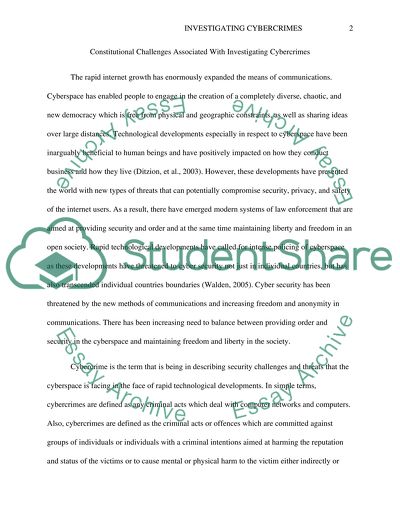Cite this document
(“Constitutional Challenges Associated With Investigating Cybercrimes Term Paper”, n.d.)
Constitutional Challenges Associated With Investigating Cybercrimes Term Paper. Retrieved from https://studentshare.org/law/1399547-constitutional-challenges-associated-with-investigating-cybercrimes
Constitutional Challenges Associated With Investigating Cybercrimes Term Paper. Retrieved from https://studentshare.org/law/1399547-constitutional-challenges-associated-with-investigating-cybercrimes
(Constitutional Challenges Associated With Investigating Cybercrimes Term Paper)
Constitutional Challenges Associated With Investigating Cybercrimes Term Paper. https://studentshare.org/law/1399547-constitutional-challenges-associated-with-investigating-cybercrimes.
Constitutional Challenges Associated With Investigating Cybercrimes Term Paper. https://studentshare.org/law/1399547-constitutional-challenges-associated-with-investigating-cybercrimes.
“Constitutional Challenges Associated With Investigating Cybercrimes Term Paper”, n.d. https://studentshare.org/law/1399547-constitutional-challenges-associated-with-investigating-cybercrimes.


